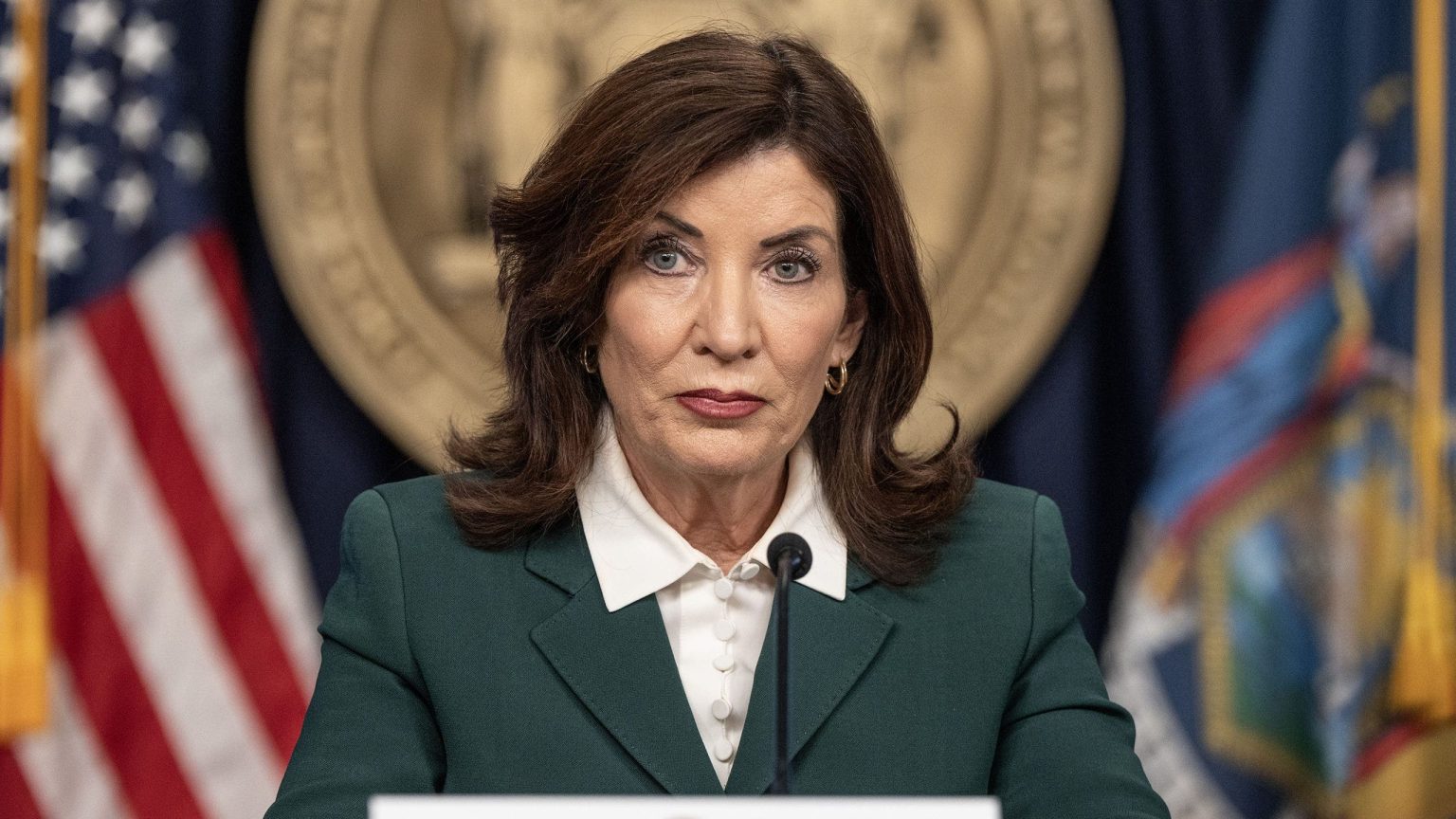New York Governor Kathy Hochul recently signed the Climate Change Superfund Act into law, which will charge oil and gas firms an estimated $75 billion over the next 25 years. The legislation, sponsored by Senator Liz Krueger and Assembly Member Jeffrey Dinowitz, is modeled on federal and state superfund laws that charge firms accused of pollution. While environmental groups have praised the bill, business groups are concerned that it will increase the cost of doing business in the state and lead to higher energy prices for consumers. Critics argue that the bill may be impractical and could face legal challenges.
Senator Krueger defended the legislation by stating that it holds the largest climate polluters accountable for the climate crisis and requires them to pay their fair share to help New Yorkers deal with the consequences. Opponents of the bill, including the New York State Business Council, argue that it raises significant implementation questions and constitutional concerns. They believe that the $75 billion price tag will result in unintended consequences and increased costs for households and businesses. However, Governor Hochul sees the bill as a victory for the state’s citizens and states that the funds will be used for climate mitigation efforts.
The Climate Change Superfund Act will result in significant assessments for both domestic and foreign energy producers. Foreign firms such as Saudi Aramco, Pemex, and Lukoil will likely face substantial charges, based on their estimated yearly CO2 emissions. In total, 38 firms deemed carbon polluters will be responsible for paying charges, including American oil giants Exxon and Chevron, UK’s Shell and BP, and Brazil’s Petrobras. Critics of the bill have raised concerns about the challenges of collecting assessments from foreign firms.
Consumer advocacy groups are worried about the impact of the Climate Change Superfund Act on consumers, especially when implemented alongside other new measures. The reinstatement of congestion pricing in New York City and the pending `cap and invest’ rule from the Environmental Department, combined with the new assessments on fossil fuel usage, stand to greatly affect commuters and consumers in the state. Critics caution that the combination of these measures may lead to billions of dollars in new assessments for consumers, impacting a wide range of individuals.
While the Climate Change Superfund Act has been hailed as a necessary step in addressing climate change and holding polluting firms accountable, there are concerns about its practicality and potential impact on businesses and consumers. The $75 billion price tag has sparked debate between environmental groups, business organizations, and lawmakers. As the bill goes into effect, its implementation and enforcement will be closely monitored to see how it impacts the state’s economy, energy sector, and consumers in the years to come.


